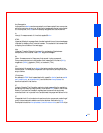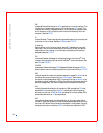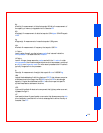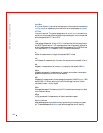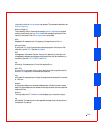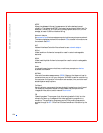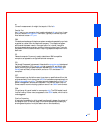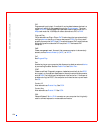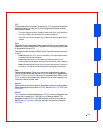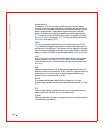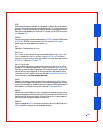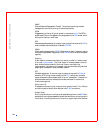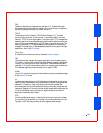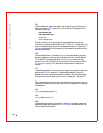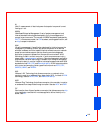
283
TAPI
Telephony Applications Programming Interface (API). Enables Microsoft
Windows program applications to operate with a wide variety of telephony
devices, including voice, data, fax, video, and so on.
TCP/IP
Transmission Control Protocol (TCP)/Internet Protocol (IP). The basic
communication protocol of the Internet. It can also be used in a private
network. TCP/IP is a two-layer system. The higher layer, TCP, manages the
assembling of a file into smaller packets that are transmitted by one computer
over the Internet and received by the TCP layer on another computer. The
receiving computer’s TCP layer reassembles the packets into the original
message. The lower layer, IP, addresses each packet so that it gets to the right
destination. See IP and IP Address.
Token Ring
A network communications protocol. See also Network Adapter.
TSR
Terminate-and-stay-resident. A program application that is loaded, stays in
RAM after it is terminated, and can be reactivated by pressing a designated
“hotkey” or a combination of keys. Examples of TSRs are calculators and
calendars. OSs like Windows have the ability to constantly switch back and
forth between applications and thereby do not require TSRs.
UDMA
Ultra DMA. A hard drive protocol that allows the computer to take advantage
of fast Ultra ATA drives.
UL
Underwriters Laboratories, Inc. U.S. Federal law mandates that all equipment
used in a place of business be certified as safe by a nationally recognized test
laboratory. In addition, many local electrical and building codes and
ordinances require that products be certified by a nationally recognized test
laboratory. Because UL is one of the most widely recognized test laboratories
in the United States, many customers of large manufacturers make UL
approval a mandatory requirement.
UPS
Uninterruptible power supply. A device that allows your computer to keep
running for a limited amount of time after the primary power source is lost.
Typically, a UPS can also provide protection against power surges.



